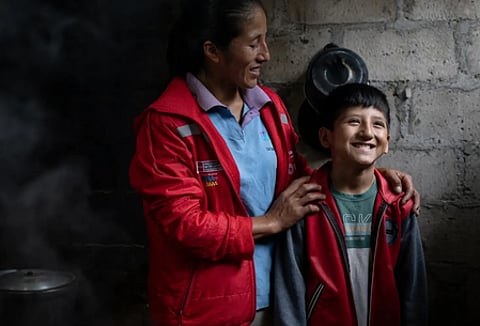UNICEF report shows millions of Indian children still missing essential services
A new UNICEF assessment warns that despite India’s progress in reducing poverty, 206 million children in the country still lack access to at least one essential service such as education, health, nutrition, housing, clean water or sanitation. The report, State of the World’s Children 2025: Ending Child Poverty - Our Shared Imperative, highlights how these gaps continue to shape long-term wellbeing and opportunities for millions.
According to the study, just under a third of these children, about 62 million, face two or more deprivations, meaning they remain vulnerable even as national indicators improve. As noted by The New Indian Express, India is home to around 460 million children, making progress in child wellbeing a decisive factor for global development.
Cynthia McCaffrey, UNICEF India Representative, said that “more than half of India’s 460 million children have access to basic services”, and credited the country with significant progress toward the United Nations Sustainable Development Goal (SDG) 1.2 target of halving multidimensional poverty by 2030.
The report states that 248 million Indians have escaped multidimensional poverty over the past decade.
McCaffrey pointed to national schemes such as Poshan Abhiyaan, Samagra Shiksha, PM-KISAN, the Mid-Day Meal Scheme, Beti Bachao Beti Padhao and Swachh Bharat as examples of large-scale government investments shaping improvements in child nutrition, learning and welfare.
She added that these programmes align with India’s long-term national goals including the Viksit Bharat@2047 vision.
UNICEF recommends strengthening these initiatives further, especially in districts facing persistent deprivation. It also urges expanding investment in child health, learning and safety, encouraging public-private partnerships and institutionalising child-focused budgeting across states.
Globally, the report warns that climate shocks, conflict and economic stress are increasing the risks faced by children, particularly the youngest and those with disabilities.
McCaffrey said that ending child poverty requires leadership and prioritisation, stating that “there is no greater return on investment than investing in children”.


